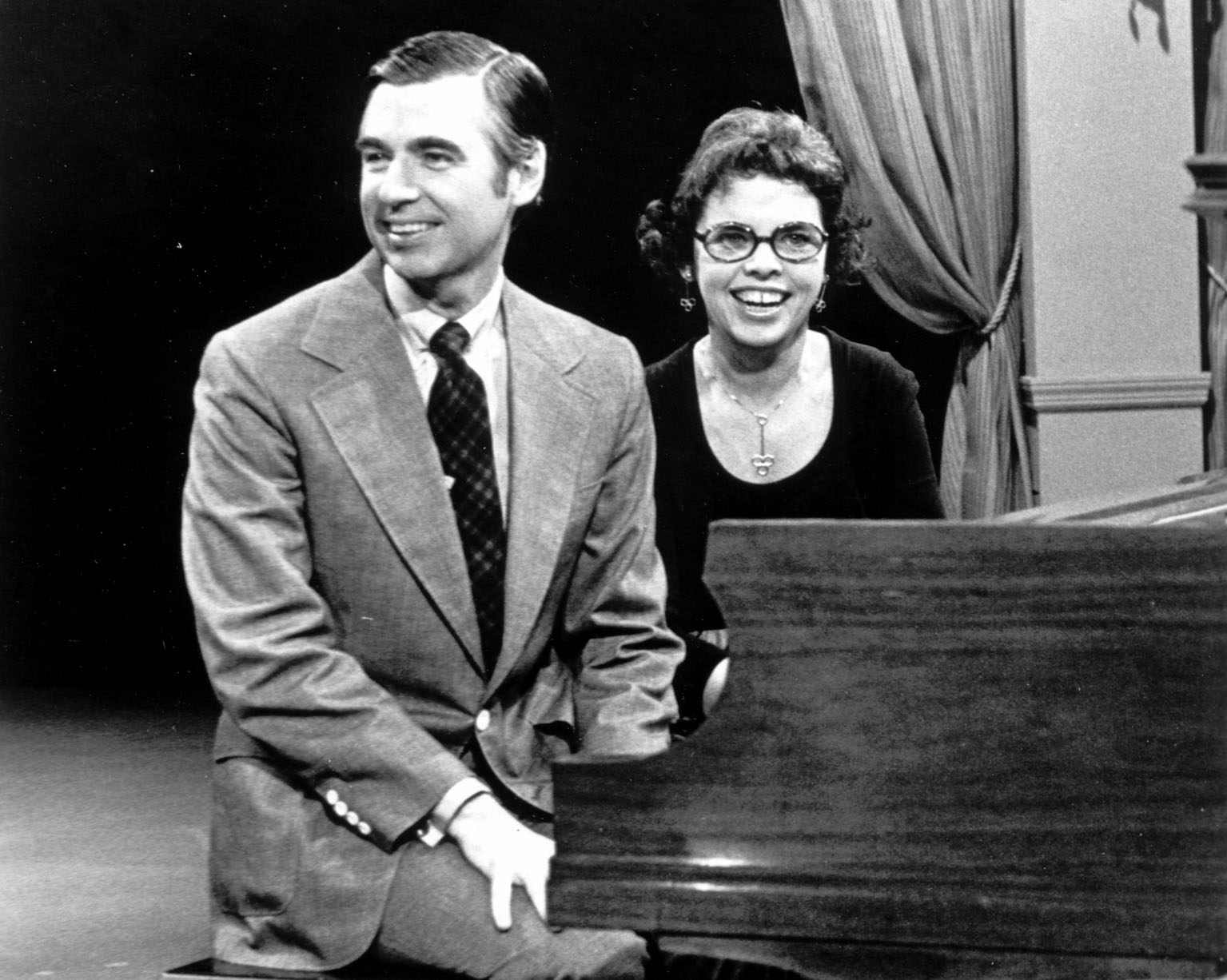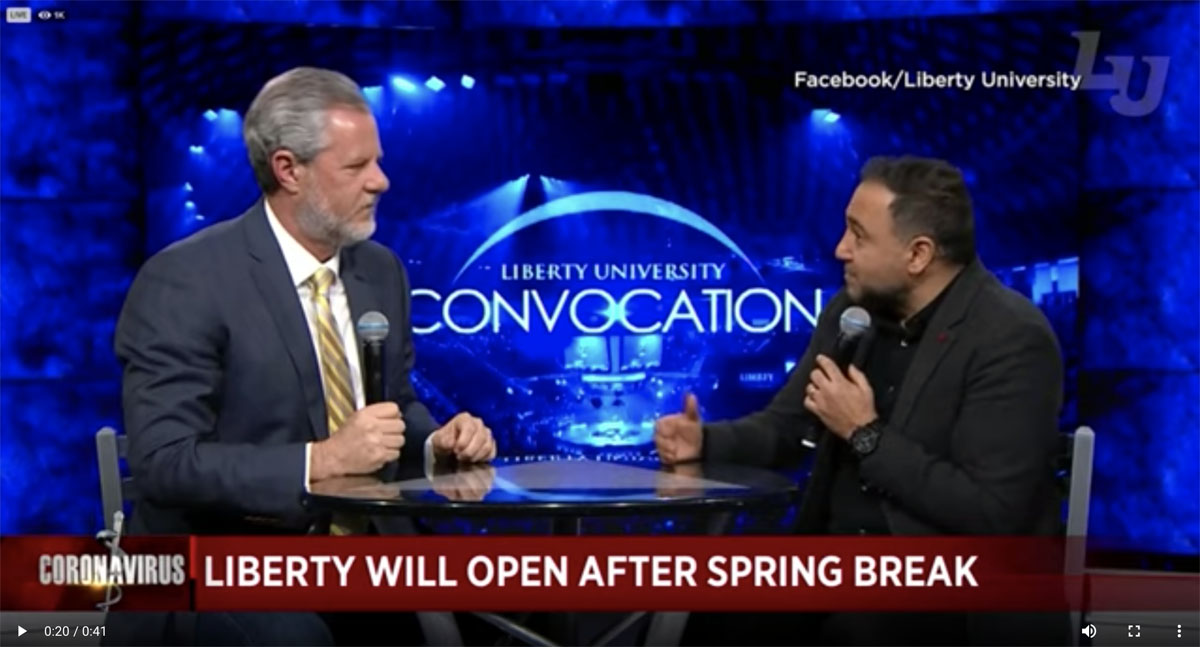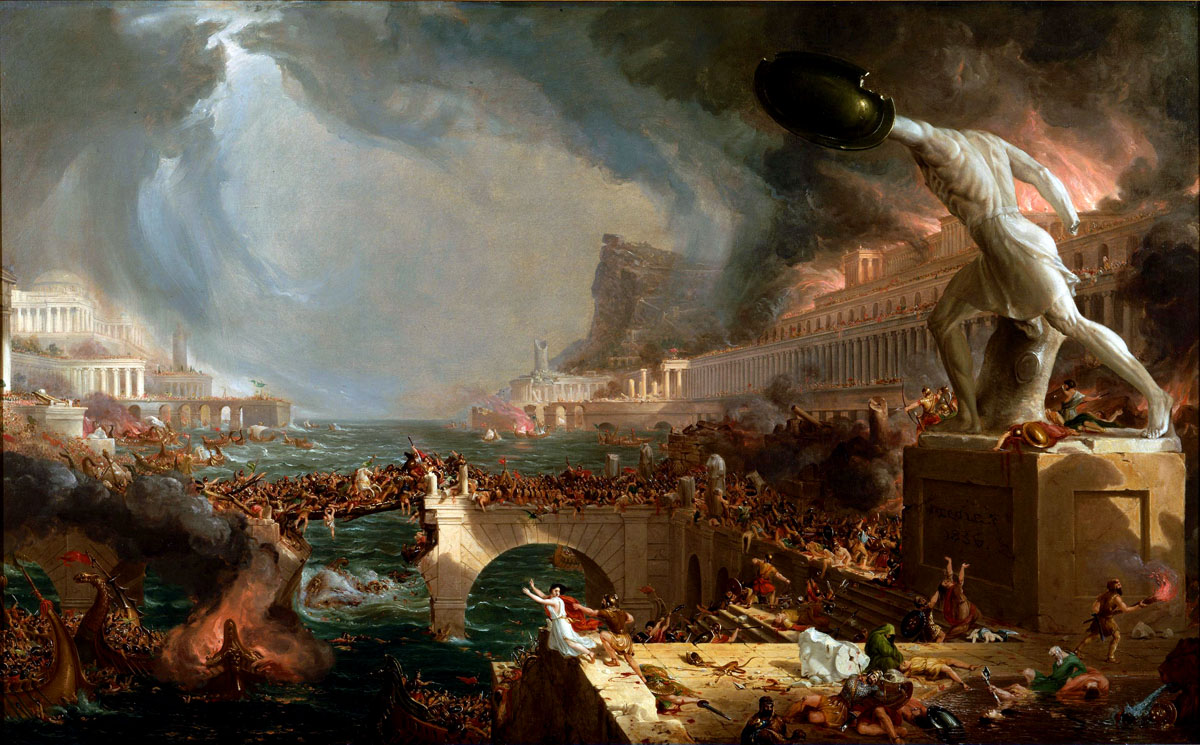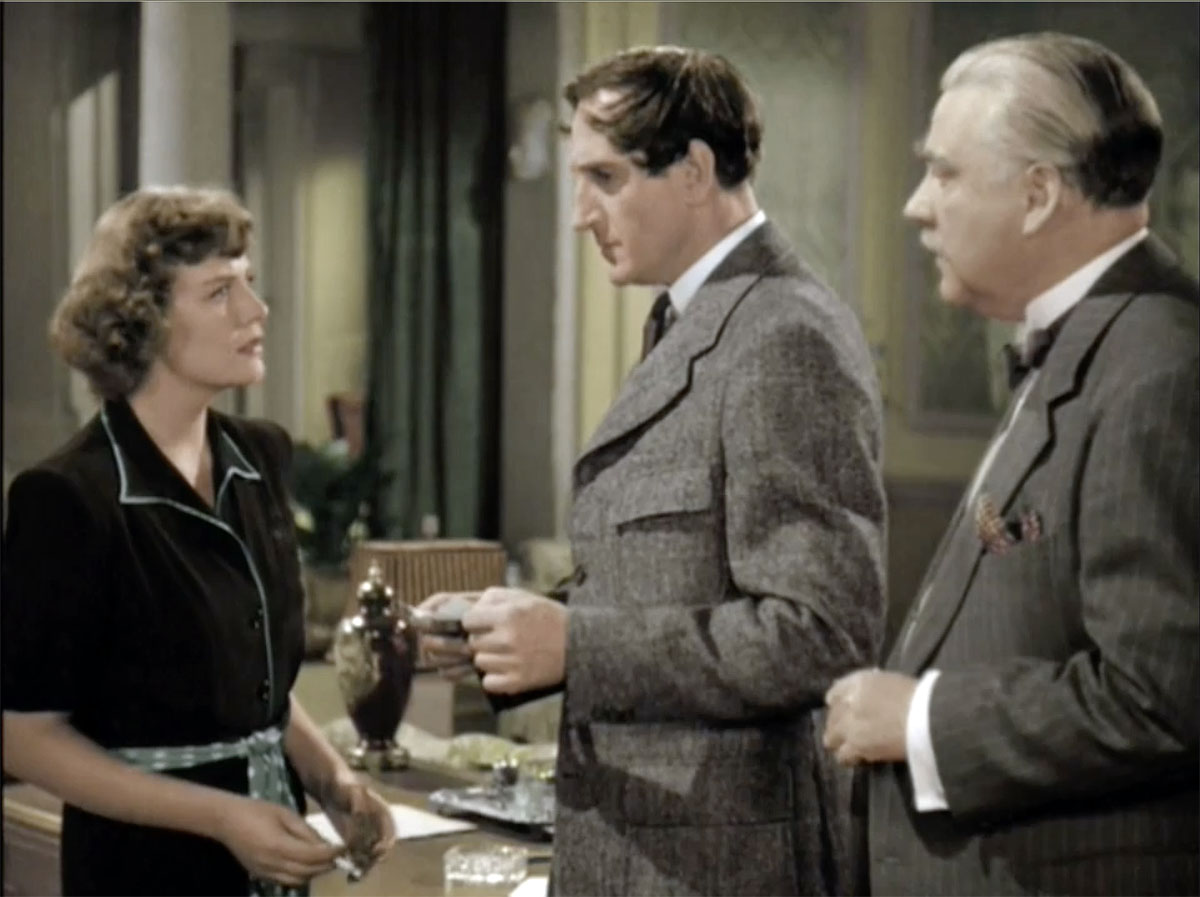
Ken on the Scottish isle of Ulva, September 2018
Ken has an op-ed in today’s Washington Post on the right to roam and why we need it now more than ever:
America may be opening back up, but most of our land is still off-limits. Let’s change that.
Watching a bewildering world from the middle of nowhere

Ken on the Scottish isle of Ulva, September 2018
Ken has an op-ed in today’s Washington Post on the right to roam and why we need it now more than ever:
America may be opening back up, but most of our land is still off-limits. Let’s change that.

Fred and Joanne Rogers, circa 1974. PBS photo.
Last night I watched “A Beautiful Day in the Neighborhood,” the Tom Hanks film about Mr. Rogers. There’s no need for a review here, and you’ve probably already seen the film. But I did want to comment on the soundtrack, which I thought was extraordinary. It was a lush and varied soundtrack, carefully designed to encourage an emotional response to the film. There is a beautiful — but too short — scene in which Mr. Rogers and his wife, Joanne, are playing a piano duet on separate pianos, in their living room. The scene ended much too quickly, because I wanted to hear the whole piece.
Here’s a link to a YouTube video. The piece is “Bilder aus Osten,” by Robert Schumann.
Maybe it’s because older ears have more difficulty separating signal from noise. But the soundtracks for many movies make movie-watching an unpleasant experience for me (and for Lily, the cat). There is too much noise, everything but the dialogue is too loud, and the dialogue is often hard to follow, because the dialogue gets drowned out in all the noise. It’s such a pleasure to watch a film like “A Beautiful Day in the Neighborhood,” with its crystal-clear, well-designed, and ever-so-listenable soundtrack.

Ken, who has been a featured author at the Wigtown Book Festival in Scotland for several years, has written a piece for the festival’s web site about being stuck here at the abbey during the Pandemic. Regular readers of this blog will recognize the characters. Please think of it as an interpretation of the American heartland for European readers.

The Mousa broch in the Shetland Islands. Wikipedia photo.
An article in Smithsonian Magazine says that archeologists are planning to build a replica of a broch. Brochs, found only in Scotland, are a kind of prehistoric castle. They are towers with very thick double walls. What a place to live!
I wrote about brochs in a post here back in 2015. I used a broch as a setting in Oratorio in Ursa Major.
In retrospect, it seems odd that I didn’t make an effort to visit a broch (or at least the ruins of a broch) in my visits to Scotland in 2018 and 2019. The best-preserved broch is the Mousa broch in the Shetland Islands — a very long haul north from the Scottish mainland, opposite Norway, but a trip that I’d like to make nevertheless. The Mousa broch, according to Wikipedia, dates to about 100 B.C.
We know pretty much nothing about the brochs other than what archeologists can tell us. To me, one of the most intriguing factoids is that the people who lived in the brochs imported wine and olives from the Mediterranean. It is fascinating to imagine what kind of lives they must have lived. They clearly were rich, or at least had something to trade. They had excellent ships and seafaring skills. They were sophisticated in that they knew, and desired, what the Mediterranean had to offer. Yet they preferred to live up against the sea on their rocky, northern islands. I think I would have liked them.

I caught a virus on the Isle of Harris last summer. This virus causes an obsession with collecting tweed. It starts with one’s first Harris tweed jacket. But it doesn’t end there. Oh, no. Before you know it you’re scouring eBay for more, discovering in disappointment that there are only so many colors of Harris tweed. (If you ever see a burgundy Harris tweed jacket in men’s size 40, or a deep forest green, or a deep midnight blue, please let me know. But I don’t think you’re likely to see one.)
And though it starts with Harris tweed, soon all tweeds become interesting. There are many fine tweeds. My last acquisition — a cream colored tweed made in the U.S.A. — has elbow patches. This is my first jacket with elbow patches. Now I’m afraid I’ll start collecting jackets just for the elbow patches.
I learned from Googling that elbow patches have an interesting history. The elbows of jackets wore out first, so worn-out elbows were often patched with leather. Then the patched-elbow look became popular — even a status symbol — and new jackets came with patches. Elbow patches are sometimes called “professor patches.” Gardening, you see, or shooting, didn’t wear out the elbows. But sitting at a desk did. Hence: professor patches.
It would take some hardcore desk-sitting to wear out tweed elbows, because tweed is very hard to wear out. I feel sure, though, that J.R.R. Tolkien wore out many tweed jackets against the desks and armchairs of Oxford. But the most common type of damage to vintage tweed jackets, from what I’ve seen, are rips and tears in the lining where the sleeve attaches to the shoulder of the jacket. That’s from putting on jackets carelessly and straining the seams. That’s one reason, of course, that the linings of jackets are always smooth and silky: the jacket slips on easily over whatever else you’re wearing. The method that I like to use for putting on a jacket is to reach straight up with both arms after my arms are in the sleeves. Then the jacket falls down onto the shoulders nice and neat.
In Googling for the history of elbow patches, I saw that some guys are worried about whether elbow patches are out of style. Good grief. Who cares whether elbow patches are out of style? How could anything that is good and practical ever go out of style? This is why I collect 7-ounce cups and saucers in heavy porcelain, and that’s why guests are always befuddled when they ask me for a large mug, and I say that, oh dear, I just don’t seem to have any. After making a show of thinking for a second, I heroically reach into a top shelf and just happen to discover one large mug. They are grateful. But those guests who are here at least for a weekend soon abandon the big mug and instead start using 7-ounce cups and saucers in heavy porcelain. It doesn’t take long for them to come around.
These days, for outdoor recreation, “tech” clothing is the thing — quilted coats, and synthetic fabrics that stretch a little and dry quickly. Tweed, which is always wool, is said to smell like wet dog when it gets wet. But I don’t care.
These days, we are encouraged to buy “thrifted” clothing rather than new things, for environmental reasons. Most clothing, though, is not the sort of thing that will last for decades and that retains value. But apparently people can’t bring themselves to throw away old tweed, because after twenty years it may still look new. Much of it ends up on eBay.
One of these days I’m going to find one in burgundy, forest green, or midnight blue.

If you don’t want to watch the 2011 film “Contagion” right now, that’s certainly understandable. However, I watched it last night, and I found it to be more educational and encouraging than scary. Clearly a lot of research went into this film. I’m guessing that the screenwriters worked with experts in communicable diseases to work out the most probable ways in which a pandemic would develop and spread. Based on what we’ve all learned during the current pandemic, the film is eerily accurate.
“Contagion” reminds us just how predictable, and, eventually, inevitable this pandemic was. There really is no excuse for not having been prepared for it.
You can stream “Contagion” from several sources, typically at a rental cost of $3.99.
Update: New York Times: He wrote ‘Contagion.’ Here’s what he had to say about the response to the coronavirus.

There are three conditions of the human psyche that are puzzling and frightening to those of us who don’t have those conditions. Those conditions are authoritarianism, religious fanaticism, and not being very smart. All three of these conditions are commonly found in the same person. To have even one of them can be debilitating. To have two is doubly debilitating. Donald Trump, for example, is not a religious fanatic. But he is an authoritarian, and he is not very smart. For convenience in this post, let’s call the people who have these conditions Trump-Susceptibles, or Reds. Let’s call those who don’t have these conditions Not-Trump-Susceptibles, or Blues.
There is a certain symmetry here. Just as Blues are puzzled and frightened by Reds, so Reds are puzzled and frightened by Blues. Each group sees the other as dangerous. There is a certain way, though, in which the symmetry breaks down. Blues can understand Reds. Blues just look down on Reds as mean, addled, and stupid. But Reds cannot understand Blues. Understanding Blues is beyond the capacity of Reds. I would argue that Reds cannot understand Blues because of what I call Webster’s First Law: People cannot perceive above their own level. So Reds, lacking the capacity to understand Blues, say that Blues are under the influence of Satan, or that Blues are the agents of evil conspiracies such as Pizzagate. Smarter people can easily understand the thought processes of the not-so-smart. But the not-so-smart cannot easily understand the thought processes of smarter people. Religious fanatics who have no doubt that they know the mind of God and even the mind of Satan think that there is something wrong, and wicked, in those who don’t have their innate knowledge of the mind of God. God speaks to Reds; Blues wickedly refuse to listen.
Let’s consider the Satan angle, for example. A must-read this morning is the Washington Post piece ‘I would rather die than kill the country’: The conservative chorus pushing Trump to end social distancing. The article quotes R.R. Reno, editor of the religious journal First Things, as saying that “sentimental humanists” are behind the closing of public accommodations because of the corona virus. “Satan prefers sentimental humanists” to do his handiwork, Reno said. There you have it. Reno believes that he knows the mind of Satan. And Reno believes that Blues are doing Satan’s work. According to Wikipedia, Reno holds a Ph.D. from Yale. Presumably he is smart, so he has two of the three debilitating conditions — authoritarianism and religious fanaticism.
They claim that their concern is about the economy, or about the world that their children will inherit. I don’t buy that. Either they’re trying to deceive us on their true motivations, or they’re deceiving themselves. Their true concern is that they might lose their power.
Reds are a minority. Yet somehow we Blues find ourselves in a nightmare in which Reds hold the White House and the U.S. Senate, and the Reds all around us are gloating. Trump’s fear, obviously, is that a collapse of the economy will take away his only hope of holding on to Red power. Because Trump, and other Reds, see nefarious conspiracies and Satan behind anything that frustrates what they see as God’s work, they see the corona virus as a wicked plot — a hoax — invented by Blues. Reds all over the country have gotten the message, and now Reds out in the hinterlands are all abuzz about it. (See the Facebook meme below, which came from the Republican Party group in my county. Note the message of the meme, that this is all just an evil conspiracy by Blues.)
I would not be at all surprised now to see Reds organizing gatherings (not to mention defiantly going to church) to teach us Blues a lesson.
No one knows what course this pandemic will take. But certainly one possibility is that people who are authoritarians, religious fanatics, and not very smart are going to get sick and die in larger numbers. Their defiance of the devil’s work done by us Blues could cost many lives, though, and not just Red lives. If thousands of students return to Liberty University as the corona virus is spreading rapidly, what might happen? Jerry Falwell Jr., like Donald Trump, is so sure of what’s inside of his Red mind that he’s willing to bet a great many of other people’s lives on it. Red power is at stake, so to them it’s God versus Satan, and they expect God to protect them.
No one knows what’s going to happen, so I am not going to make any predictions. But the probabilities don’t seem to be on Trump’s and Falwell’s and Glenn Beck’s side. How many Reds will follow them, and for how long? If thousands of Reds go along with them and expose themselves to the virus, then that would be, at the very least, a fascinating test of the real-world consequences of the Red world view. It also could diminish the number of Reds in the American population.
As for me, I’ll be watching their experiment closely. And I’ll be doing my damnedest to stay as far away from them as I can.

Update 1: During the Trump era, Russian propaganda as carried by RT.com has shown a peculiar alignment with Republican propaganda in the United States. As with all propaganda, we need to do our best to figure out whose interest it serves.
From RT.com:
Compare this with Fox News:
Fox News’ Brit Hume: It’s ‘Entirely Reasonable’ the Elderly Would Want to Die to Save Economy
Update 2: New York Times: The Road to Coronavirus Hell Was Paved by Evangelicals.
Update 3: Politico: A far-right rallying cry: Older Americans should volunteer to work.

“The Course of Empires: Destruction.” Thomas Cole, 1836. Click here for high-resolution version.
About two years ago, I reviewed Kyle Harper’s book The Fate of Rome: Climate, Disease, and the End of an Empire. Harper drew on new climate research and what we might call archeological microbiology to remind us that political histories are only partial histories. Nature bats last. Are you listening, Donald Trump?
Harper’s book was reviewed in all the right places. Here are some short reads on the book in the L.A. Review of Books, The Atlantic, and Foreign Affairs.
About the painting: The painting above by Thomas Cole is part of a series called “The Course of Empire.” There are five paintings in the set: “The Savage State,” “The Arcadian or Pastoral State,” “The Consummation of Empire,” “Destruction,” and “Desolation.” You can see all the paintings on Wikipedia.
Trump & Company have been saying this week that the coronavirus is being hyped by Democrats to spook the stock market and take down Trump. As for hype, I don’t know. But one thing is certain: We Democrats are delighted to see Trump swept up in a situation that he and his goons can’t lie, cheat, and spin their way out of (though they’re trying). We’re daring to hope for the near-impossible: That Trump’s inability to control a pandemic and the stock market will help members of the Trump cult see how feckless and corrupt Trump really is.
The downturn in global markets is looking pretty serious. My guess, though, is that the coronavirus is the last straw, not the cause, of the market correction. There have been many warning signs and ominous economic indicators. I’m surprised that the market held up for as long as it did.
How scared should we be of the coronavirus? There are some things that I think are particularly disturbing. Rush Limbaugh says it’s just a cold. But colds — or flu, for that matter — don’t have fatality rates approaching 2 percent. The words “difficulty breathing” are very scary words. Bloomberg has reported that two-thirds of the critically ill patients required a month or more on mechanical ventilators. Just how much equipment do hospitals have available for providing “invasive breathing support”? You don’t want to get this virus.
Much has been written about how to prepare for the possibility of pandemic. The most important thing, it seems to me, is to have enough food and supplies stashed away that you can stay home, possibly for weeks at a time. That preparation, if not already done, needs to be done now. If the situation worsens, groceries stores may be overwhelmed even as supply lines break down.
I want to mention a powerful voice for sanity and support in a time of plague and poison politics. That’s Heather Cox Richardson, who posts on Facebook pretty much every day on each day’s significant events. She is a professor of history at Boston College. I have pre-ordered her new book, which will be released April 1: How the South Won the Civil War: Oligarchy, Democracy, and the Continuing Fight for the Soul of America. If you search Facebook for her name, you’ll find her.
Update: I have long identified as a left-wing prepper. Here’s a nice piece in the New York Times about what that means, by someone who, like me, has a San Francisco attitude toward being prepared: How to Be a Smart Coronavirus Prepper: Instead of freaking ourselves out, we need to plan for a difficult future every day.
I would add a bit of advice to the ideas above, based on my experience. Canned food and frozen food are practical only if you are diligent about rotating your stock and watching expiration dates. Otherwise, I’d suggest looking into the storage food that is sold mostly into the right-wing prepper market. These are large buckets of dried foods. The food is packed in Mylar, and vacuum and nitrogen are used to extend shelf life. These foods are supposed to keep up to 25 years if properly stored.

Sherlock Holmes and the Secret Weapon, 1943
When my search for newer fiction fails to come up with anything that I want to read, I start looking for classics. I vaguely remember reading Arthur Conan Doyle many years ago, but if I’ve ever read The Hound of the Baskervilles, I don’t recall it.
What fun! It’s light reading, which is just what we want for escape fiction. The gothic, old English atmosphere is infectious and comforting and makes you want to go make a cup of tea. Doyle’s command of English is relaxed and confident, strangely formal and informal at the same time, musical enough to be read aloud.
It was interesting to note that Doyle had been dead for only nine years when Hollywood, in 1939, started producing a series of 14 Sherlock Holmes films starring Basil Rathbone and Nigel Bruce. According to the Wikipedia article, 20th Century Fox made the first two films, then Universal took it over in 1942. Amazon Prime Video has 12 of the films.
I started with “Sherlock Holmes and the Secret Weapon.” I will certainly watch more of them.
Movies of that vintage seem more like plays to me, but that is not a criticism, because I love plays. The exterior sets may be a little flimsy, but the interior sets are rich and beautiful. And the costumes! The men are almost always wearing tweed. The tailoring is classic and superb.
I have to admit that I pay particular attention to the tailoring, having developed a fetish for Harris tweed while on the Isle of Harris last summer. (I now have five Harris tweed jackets in my wardrobe.) The classic tweed jackets of the 1970s and 1980s were cut just the same as the 1942 jackets in “Sherlock Holmes and the Secret Weapon.” Some things never change. Some are what we today call “slim fit,” for men who have the figure for it. The jackets of more portly men are cut to flatter their portliness. Rathbone often wears tweed Norfolk jackets. Norfolk jackets, whether vintage or new, are much more difficult to find. (I’m still looking.)
As you can see, I’m in escape mode. The Trump impeachment trial went as well as it could have gone. The Democratic candidates for president are slouching toward Super Tuesday, the first event that really matters. I immerse myself in reading the news every day, as always, but my impulse has been escape rather than writing about what has been happening of late.
It’s pouring rain here. So now back to The Hound of the Baskervilles, and a cup of tea.
Above are the opening 38 seconds of Season 2, Episode 1, of The Expanse. How much of the dialogue can you understand?
As if things weren’t already scary enough out in the real world, we now have to add the possibility of a global pandemic to our worry list. Good mental health requires some escape.
It’s funny how we find comfort in dystopia stories even as the world feels more and more dystopian. Mostly what we’re looking for, I think, is courage. Only the right kind of characters can leave us with courage. Those characters are always good, even if (and probably because) they are weak, damaged, and scared.
As streaming services flourish and the cost of publishing is reduced to next to nothing, never have so many stories been available to us. And yet finding stories that are fit to watch or fit to read is a hard task. I wanted so badly for The Expanse to be fit to watch that I watched the entire first season, hoping that subsequent seasons (which got better reviews) would get better. But I gave up after watching a few minutes of Season 2, Episode 1.
I had many complaints about the first season. A big one was that I just couldn’t understand most of the dialogue. Partly because I couldn’t understand the dialogue, and partly because the screenwriters seemed to want us to be confused, I read the Wikipedia plot synopsis after each episode to make sense of what I had just seen.
I Googled for search terms such as “The Expanse” and “confusing dialogue,” and I found that I wasn’t the only person with this complaint. Other people’s explanations were the same as mine: The sound track is too loud and too noisy. We often can’t hear the dialogue because it’s buried under noise and bad music. Many of the actors speak English poorly. Much of the dialogue is ironic and smart-ass, thus much of the dialogue doesn’t really mean what was said. So you have to run all the dialogue through your irony analyzer. But I also found that the sound designers of The Expanse were very proud of their awful work. That’s not very promising for future series.
My Googling also found some serious discussions about the larger problem of incomprehensible dialogue. As the quality of video (and the screens we watch it on) get sharper and sharper, the quality of the audio is going to hell. Among the reasons given for this were that the people who do the production work have read the script and have watched each scene many, many times. They know what the characters are saying, so they fail to realize that the rest of us don’t. So they add noise.
Plus I think there is a kind of narcissism with sound designers, who want to make damned sure that you’ve heard what they’ve done. They’re like the loud (and mediocre) live musicians who intentionally make conversation impossible in pubs and lounges. They want you to hear them and only them whether you like it for not. There actually is a pub a few miles from here in a beautiful riverside setting, but I left and have never gone back after my iPhone measured a band’s volume at well over 100 decibels, and the band arrogantly refused requests to turn it down. I often wonder if many people whose lives involve lots of amplifiers and headphones can’t even hear anymore.
But inaudible dialogue and an intentially confusing script aren’t the only problem with The Expanse. It wants to be hip and edgy, so it disdains classical forms. By comparison, Battlestar Galactica was positively Shakespearean, with a brilliant cast actually trained in accents and diction, and with dialogue that was sharp and smart and efficient. We never struggled to understand what was said or what was happening.
In The Expanse, everything is so gritty and vague that it’s hard to figure out whether there are any good guys. They all seem pretty bad. Though, by the end of Season 1, the Holden character (Steven Strait) is showing some signs of being a good guy.
Once again I’m searching the galaxy for stories that are worth telling, for writers who can write, and for characters who don’t have marbles in their mouths.
Note: In the video clip above, I get the words “cover me,” “light me up,” and “left.” How did you do?